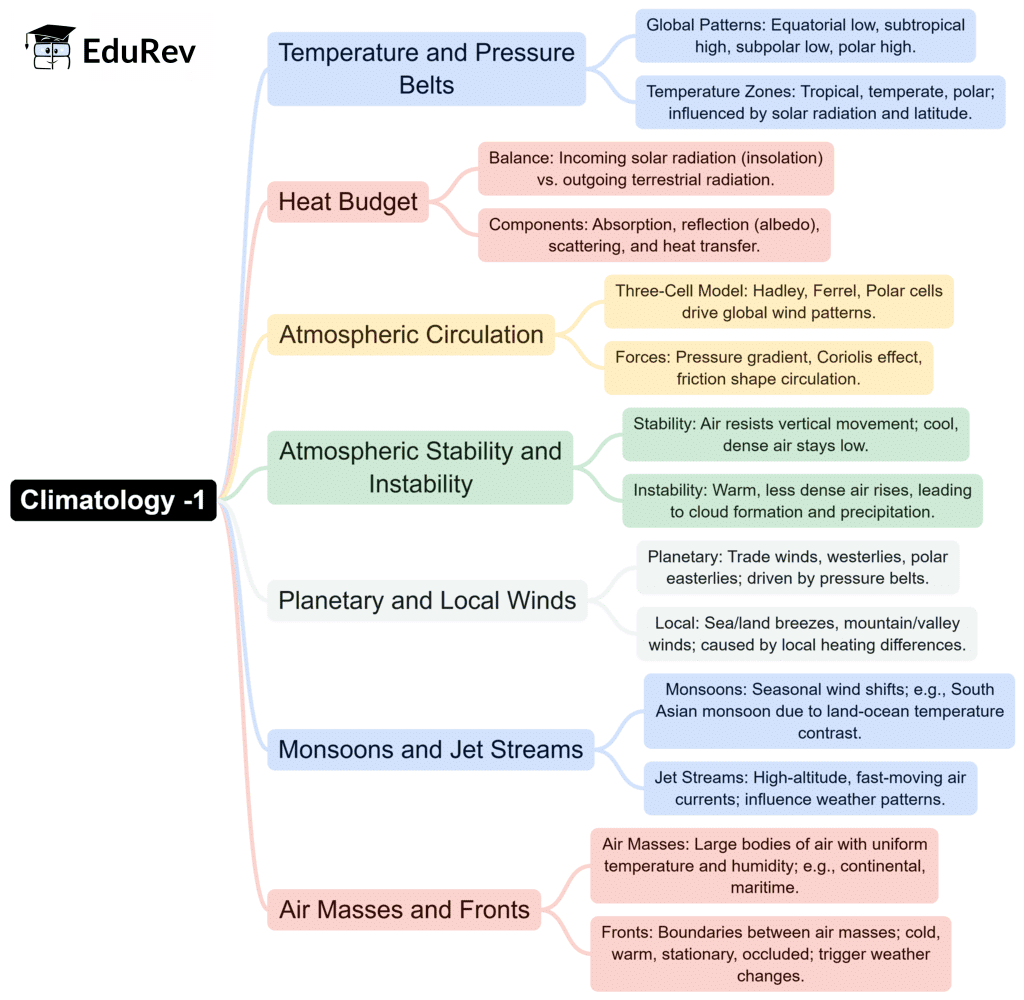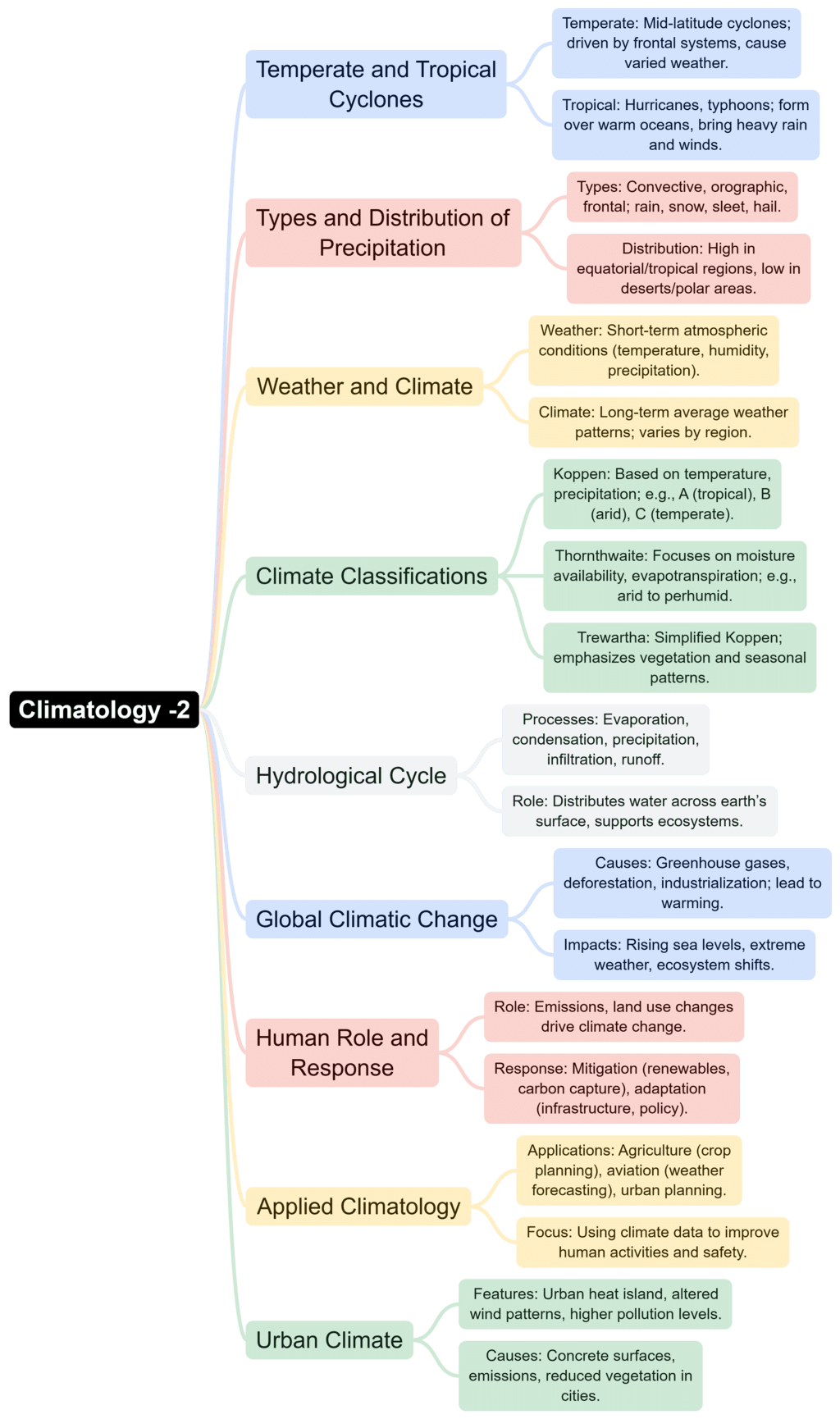SSC CGL Exam > SSC CGL Notes > General Awareness for SSC CGL > Mind Map: Climatology
Mind Map: Climatology | General Awareness for SSC CGL PDF Download


The document Mind Map: Climatology | General Awareness for SSC CGL is a part of the SSC CGL Course General Awareness for SSC CGL.
All you need of SSC CGL at this link: SSC CGL
|
486 videos|1936 docs|395 tests
|
FAQs on Mind Map: Climatology - General Awareness for SSC CGL
| 1. What is climatology and why is it important for UPSC preparation? |  |
Ans. Climatology is the scientific study of climate, which encompasses the long-term patterns and averages of weather conditions in a specific area. For UPSC preparation, understanding climatology is crucial as it helps candidates grasp the impact of climate on various aspects such as agriculture, water resources, and disaster management, which are significant topics in the UPSC syllabus.
| 2. How does climate change affect Indian agriculture? |  |
Ans. Climate change poses several threats to Indian agriculture, including altered rainfall patterns, increased temperatures, and more frequent extreme weather events. These changes can lead to reduced crop yields, affect food security, and alter the geographical distribution of various crops. UPSC aspirants must understand these impacts as they are frequently discussed in the context of national policies and environmental management.
| 3. What are the major factors influencing climate in India? |  |
Ans. The major factors influencing climate in India include geographical location, altitude, ocean currents, monsoon winds, and the presence of the Himalayas. Each of these factors contributes to the diversity of climatic conditions across different regions of India, making it essential for UPSC candidates to study them for a comprehensive understanding of the country's climate.
| 4. What are the implications of climate change on water resources in India? |  |
Ans. Climate change can lead to altered precipitation patterns and increased evaporation rates, significantly impacting water availability in India. This has implications for drinking water supply, irrigation, and hydropower generation. UPSC aspirants should be aware of these challenges as they are critical for sustainable development and resource management discussions.
| 5. How can India mitigate the effects of climate change? |  |
Ans. India can mitigate the effects of climate change through various strategies, including promoting renewable energy sources, enhancing energy efficiency, implementing sustainable agricultural practices, and improving water management systems. Understanding these mitigation strategies is essential for UPSC candidates, as they reflect India's commitment to international climate agreements and sustainable development goals.
Related Searches





















